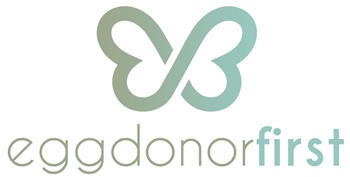The decision to use donor eggs is a deeply personal and often emotionally complex one. It’s natural to experience a range of emotions, from excitement and hope to anxiety and even fear. One common question that arises is: “Will I regret this decision?” This blog explores the psychological aspects of using donor eggs, addressing common concerns and offering strategies for navigating the emotional journey.

Common Concerns and Psychological Considerations When Using Donor Eggs
Grief and Loss
Using donor eggs can evoke feelings of grief or loss, particularly for women who have struggled with infertility for an extended period. Acknowledging these feelings is crucial. It’s okay to grieve the loss of the dream of carrying a child using your own eggs.
Guilt and Ambivalence
Some intended parents may experience feelings of guilt or ambivalence about using donor eggs. They may feel inadequate or like they are failing at something. These feelings are understandable, but it’s important to remember that using donor eggs is a courageous and selfless act of family building.
Identity and Connection
Questions about the child’s genetic connection to the intended parents are common. Concerns may arise about how to explain the use of donor eggs to the child and how to build a strong parent-child bond.
How To Overcome Psychological Challenges During Donor Egg Pregnancy
Seek Professional Support
Therapy can be invaluable in navigating the emotional complexities of using donor eggs. A therapist specializing in infertility and adoption can provide a safe and supportive space to explore your emotions, address concerns, and develop healthy coping mechanisms.
Build a Strong Support System
Surround yourself with a strong support system of family, friends, or support groups for intended parents using donor eggs. Sharing your experiences with others who understand the unique challenges of this journey can provide comfort and reassurance.
- Focus on the Positive: While acknowledging the emotional challenges, it’s important to focus on the positive aspects of your decision. Remember that using donor eggs offers the possibility of creating a loving and fulfilling family.
- Practice Self-Compassion: Be kind to yourself throughout this process. It’s okay to experience a range of emotions. Practice self-compassion and engage in self-care activities such as mindfulness, meditation, or spending time in nature.
Addressing the “What Ifs”
It’s natural to have “what if” questions. “What if I regret this decision?” is a common concern. Remember that these feelings are normal and understandable. If you find yourself struggling with regret, reach out to your therapist or support group.
“How will I explain this to my child?” is another common concern. There is no one-size-fits-all answer, but it’s important to be honest and age-appropriate in your explanations. Many families find it helpful to create a “family story” that incorporates the use of donor eggs in a way that is meaningful and understandable to their child.
Conclusion
Using donor eggs can be a successful and fulfilling path to parenthood. While it’s important to acknowledge and address the emotional challenges, remember that you are not alone. Seek professional support, build a strong support system, and focus on the positive aspects of your journey. With patience, understanding, and self-compassion, you can navigate this path and build a loving and fulfilling family.





